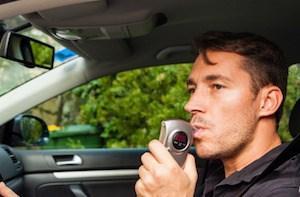DUI Testing

If you have been pulled over on suspicion of drinking and driving in Mesa, a law enforcement officer will probably request you step out of the vehicle and take a field sobriety test and/or submit to chemical testing of your blood, breath or urine. The most common type of chemical testing is to blow on a breathalyzer or Intoxilyzer machine to measure the breath alcohol concentration levels.
Although Arizona has enacted implied consent laws, where you impliedly agree to submit to this type of testing once you drive on a public road, every driver can refuse to submit to testing. However, if you refuse, your driver’s license will be suspended for at least a period of 12 months. Additionally, a driver can always refuse to submit to field sobriety testing prior to an arrest without having your license suspended.
If you have been pulled over for driving under the influence and refused to submit to alcohol concentration testing or submitted to chemical testing in Mesa, it is important to hire an experienced criminal defense lawyer to begin creating your legal strategy.
Mesa DUI Testing Lawyer
If have been submitted to DUI testing in Mesa, or any of the surrounding areas in Arizona, including Mesa, Gilbert, Tempe, Chandler, Scottsdale or East Valley, or refused to submit to DUI testing, contact the Law Office of James E. Novak. James Novak is an experienced Arizona DUI lawyer who will make every effort to find mitigating factors or defenses that are applicable to your situation that can possibly result in a reduction or a dismissal of the charges against you. Call the Law Office of James E. Novak for a free consultation at (480) 413-1499 about your chemical DUI testing.
Arizona DUI Testing Information Center
- Mesa Implied Consent
- Admissible DUI Testing Evidence in Mesa
- Field Sobriety Tests in Arizona
- Tempe DUI Breath Tests
- DUI Blood and Urine Tests in Tempe
- DUI License Suspension in Tempe
- Mesa Resources for DUI Testing
Mesa Implied Consent
According to ARS § 28-1321, anyone who operates a motor vehicle on Arizona roads is considered to have given implied consent to the testing of their breath, urine or blood for any controlled substance, drug or alcohol if they are suspected of driving under the influence of these substances.
Any driver who is arrested after being pulled over for DUI can receive a license suspension ranging from 12 months to two years if they refuse to submit to chemical testing.
The Supreme Court of Arizona recently ruled in Carrillo v. Houser that a law enforcement officer may not forcibly draw blood from an alleged DUI offender who does not give expressed consent to the testing without a valid warrant. This means if you refuse to submit to testing or you are unconscious or unable to give your consent to the testing, a law enforcement officer cannot forcibly take your blood unless they first get a warrant to do so. However, if you refuse to submit, this is likely enough probable cause to obtain a warrant to take a blood sample, and your driving privileges can also be automatically suspended upon a refusal.
Law enforcement officers in Arizona will also occasionally have “no refusal” weekends where individuals pulled over on suspected DUI are required to submit to chemical testing. If an individual refuses, a judge will be on hand to sign a warrant to test the alleged offender’s blood.
Admissible DUI Testing Evidence in Mesa
An alleged offender’s breath, blood or other chemical testing results are only admissible to prove the individual was driving under the influence if the following requirements have been established, according to section 28-1323 of the Arizona Revised Statutes:
- The test was performed with a device approved by the Arizona Department of Transportation;
- The individual who conducted the test held a valid permit to operate the device used to conduct the test; and
- Duplicates tests were conducted and the alleged offender’s BAC was within .02 of each test result.
Under ARS § 28-1388, only certain individuals are permitted to conduct blood and breath tests in Arizona. These individual can include:
- A physician,
- A registered nurse, or
- Anyone else who is qualified by law.
Field Sobriety Tests in Arizona
Prior to administering a chemical test to determine an alleged DUI offender’s blood or breath alcohol concentration level, Arizona police officers typically administer a field sobriety test to determine if the alleged offender appears to be impaired. Some of the most commonly used field sobriety tests are listed below.
The nystagmus test often involves a police officer moving a pen or small light back and forth in front of the alleged offender’s eyes while their head remains still. This test determines whether the individual’s eyes are able to follow the object without involuntarily jerking, which is also known as nystagmus. An individual who fails this test generally has a high alcohol concentration level. However, many people suffer from nystagmus without any alcohol in their system.
The police officer may also request the suspect to stand on one leg and count out loud. This test is used to determine if the suspected DUI offender can perform two tasks involving mental and physical ability without stumbling, falling, hopping, putting down the foot, losing balance, and reciting the numbers incorrectly.
The law enforcement officer may request the alleged offender walk a certain number steps in a straight line, turn and repeat. The test generally requires the alleged offender to walk heel to toe and take the same amount of steps in both directions. The purpose of this test is to check for balance, whether the alleged offender has to use their arms to maintain their balance, and whether the alleged offender is capable of following instructions.
Another balance test can involve the suspected DUI offender stand with their feet apart and recite the alphabet while their head is tilted backwards.
The results of field sobriety tests do not conclusively indicate whether an alleged offender is under the influence of alcohol or any controlled substances or not. The results are solely based on the officer’s opinion and generally must be followed by a chemical blood, breath or urine test in order to arrest and convict the alleged offender of DUI. It is possible for anyone to fail a field sobriety test for a number of reasons, including whether the alleged offender is uncoordinated or they have nystagmus of the eyes without having any alcohol in their system.
Tempe DUI Breath Tests
According to ARS § 28-1322(A), a law enforcement officer who has reasonable suspicion to believe an individual committed a DUI offense may request they submit to a preliminary breath test to determine their alcohol concentration level (AC or BAC) before any arrest.
If the alleged offender agrees to submit to a breath test, but blows over.08, they can automatically be arrested for per se DUI. However, these results may be challenged at or before trial by your criminal defense attorney, as breath tests are often inaccurate or unreliable.
Additionally, after an arrest for driving under the influence, the alleged offender will likely be required to submit to an additional breath test, called the evidentiary breath test. This test is usually more accurate than the preliminary breath test, but can still produce inaccurate results.
The breathalyzer machines most often used for testing an alleged offender’s breath alcohol concentration level in Tempe can include the Intoxilyzer 5000 or 8000. Erroneous results from these Intox machines can be caused by:
- The breath test machine was not properly calibrated or maintained;
- The test was administered by someone who was not qualified;
- The alleged offender recently used toothpaste or mouthwash that contained a chemical substance similar to ethanol;
- Variations in the alleged offender’s breathing; and/or
- The alleged offender’s breath temperature was high.
DUI Blood and Urine Tests in Tempe
According to ARS § 28-1322(B), law enforcement officers are authorized to request the alleged DUI offender submit to blood or urine testing for their alcohol concentration level before or after making an arrest for suspected DUI.
Generally, blood levels are tested through a process called gas chromatography. This method compares the alleged offender’s blood sample (an unknown blood sample) to a control blood sample (with a known alcohol concentration level) to identify the type of substance in the blood, if any, and to determine the amount of the substance.
Blood test results are not always completely accurate and can often be challenged in court. Inaccurate blood tests can result from a number of factors, including:
- Whether an alcohol swab was used to clean the area where venipuncture (blood withdrawal) was performed;
- The blood sample was not taken by anyone authorized to do so;
- The sample measured the blood serum as opposed to the whole blood;
- The blood test kit (often known as a NIK kit) was expired;
- The alleged offender was given fluids through an IV before testing; and
- The test was tainted or contaminated.
DUI License Suspension in Tempe
If an individual refuses to submit to chemical testing after an arrest for DUI or they submit to testing but fail the chemical test, their driving privileges will automatically be suspended under the Arizona Revised Statutes § 28-1321. This is a civil penalty and is not associated with any subsequent criminal conviction for DUI.
The period of suspension for a first DUI refusal is 12 months. Upon a second or subsequent refusal to submit to testing with a period of 84 months, the period of suspension is for two years.
Mesa Resources for DUI Testing
Arizona Revised Statutes – Chapter 4 of Title 13 of the Arizona Revised Statutes addresses implied consent laws in the state and the penalties an individual can face for refusing to submit to alcohol testing or for failing to pass a chemical test upon suspicion of DUI. This link is to § 28-1321, which governs Arizona’s implied consent laws.
Arizona Department of Transportation – The Arizona Department of Transportation (ADOT) is responsible for holding administrative hearings and determining if an alleged offender’s license should be suspended upon DUI refusal to submit to testing. This link is to frequently asked questions about administrative hearings in Arizona. A local ADOT office is located at:
Tempe MVD Office
1703 E. Larkspur Lane
Tempe, Arizona 85281
Carrillo v. Houser – This link is to the Supreme Court of Arizona’s opinion on implied consent in Arizona and addresses whether a law enforcement officer may withdraw blood from a suspect without their expressed consent.
Law Office of James E. Novak, PLLC | DUI Testing Attorney in Tempe
Contact the Law Office of James E. Novak today for a consultation about your DUI chemical testing throughout Maricopa County in Arizona. James Novak is an experienced DUI attorney in Tempe who will make every effort to help you avoid the penalties and repercussions to a refusal to submit to chemical testing. Contact the Law Office of James E. Novak at (480) 413-1499 for a consultation about your refusal to submit to DUI testing or DUI chemical testing questions throughout Maricopa County in Arizona.






















